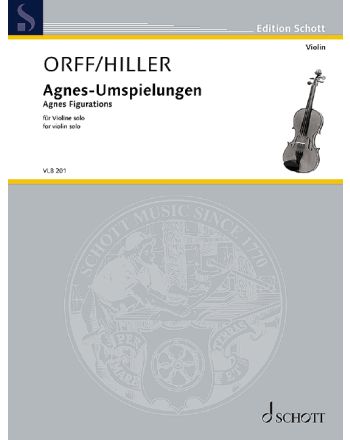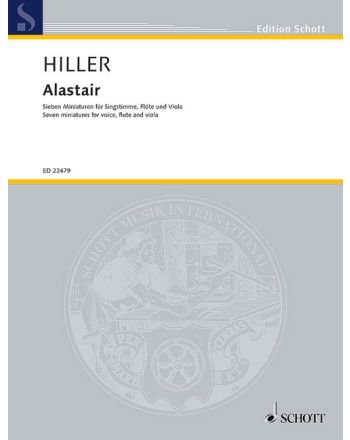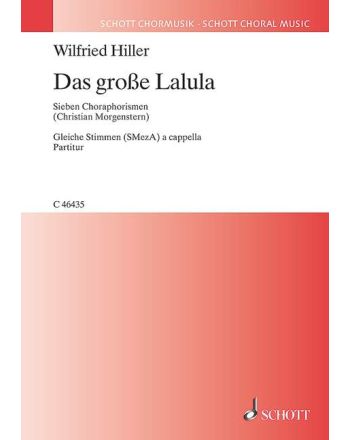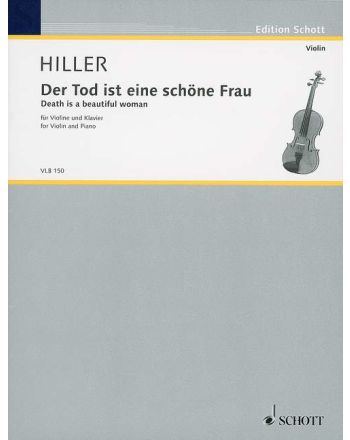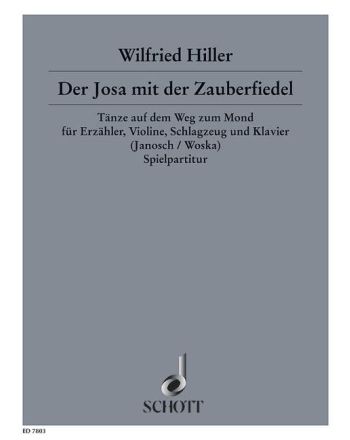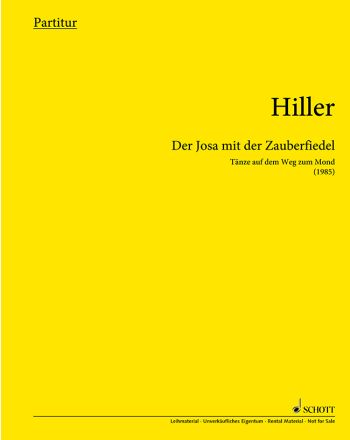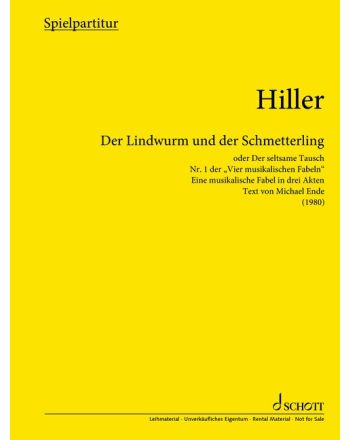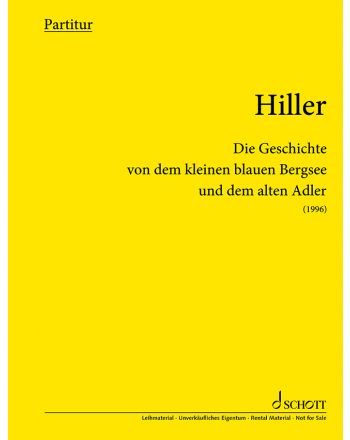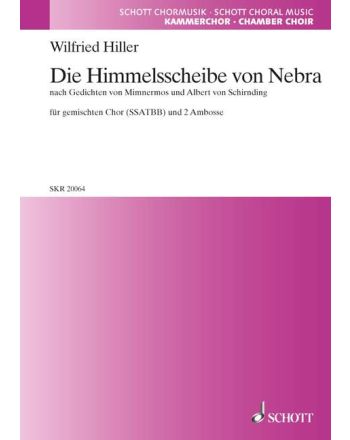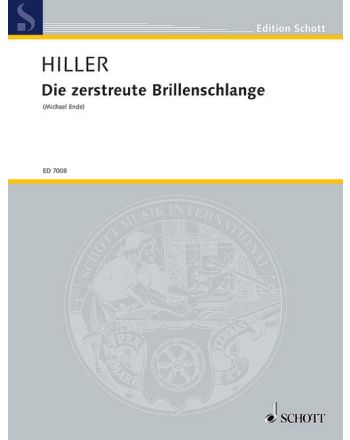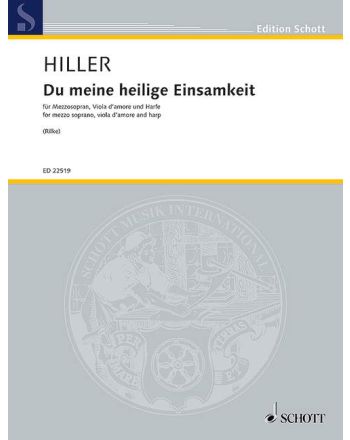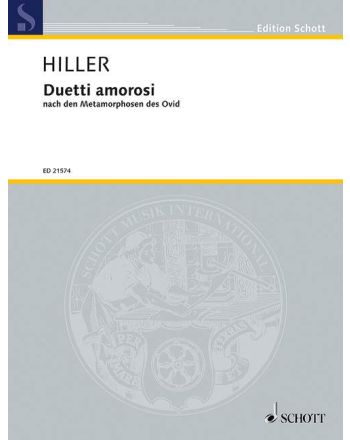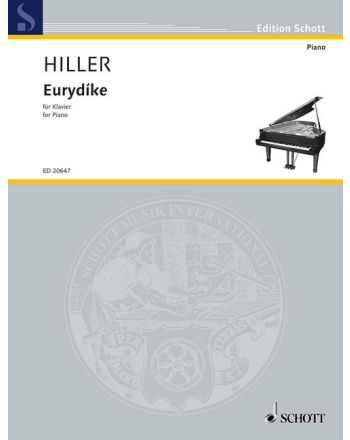
Wilfried Hiller
About Wilfried Hiller
Music is a sensuous art form, perhaps the most sensuous of all, and in its creation must also move listeners and audiences. (Wilfried Hiller)
Wilfried Hiller was born in the Swabian town of Weißenhorn on 15 March 1941. Following his piano studies at the Augsburg Conservatory (Wilhelm Heckmann), he originally found employment as an organist and ballet accompanist before commencing studies in composition (Günther Bialas), opera direction (Heinz Arnold), percussion and timpani (Ludwig Porth, Hanns Hölzl) and music theory (Hermann Pfrogner) at the Musikhochschule in Munich in 1963. From 1967, Hiller was percussionist at the Staatstheater am Gärtnerplatz and Bavarian State Opera. A year later, he founded the concert series "Musik unserer Zeit" which was later known as the “Münchner Musiknächte” (1981). The following years were influenced by Hiller’s cooperation with Carl Orff whom he had met in 1968 and with whom he remained in close contact for the remainder of Orff’s life. In 1971, Hiller was appointed as musical editor at Bavarian Radio; in the same year, the collaboration began with his subsequent wife, the actress Elisabet Woska. Additional artistic impulses were provided through music theatre projects in a creative partnership with Michael Ende from 1978 onwards. Hiller took up a teaching post at the Musikhochschule in Munich in 1991 and was appointed as teacher of composition at the Richard Strauss Conservatory in 1993. Hiller was the president of the Bavarian Music Council between 2005 and 2008. Since 2008, he has been the chairman of the Carl Orff Foundation and the artistic director of the International Organ Week in Nürnberg since 2009.
Wilfried Hiller and Michael Ende enjoyed a long spell of successful collaboration. Beginning with enigmatic fantasy figures such as Filemon Faltenreich or the cheeky Lindwurm, Hiller was able to develop a personal poetical and narrative musical language far removed from the compositional fashions of the avant-garde. Works such as Die zerstreute Brillenschlange (1979), Vier musikalische Fabeln (1980-82), Der Goggolori (1982/83), Das Traumfresserchen (1989/90) and Der Rattenfänger (1992/93) have become contemporary music theatre classics which have also succeeded in revolutionising children’s theatre through the past few decades with their blend of originality, parody, clarity and subtlety.
Following the death of Michael Ende (1995), Hiller initially collaborated with Herbert Asmodi (Die Geschichte vom kleinen blauen Bergsee und dem alten Adler) and since1997 has also worked together with Rudolf Herfurtner (Eduard auf dem Seil, 1998/99; Pinocchio, 2001). The composer has in addition utilised literary texts by Christian Morgenstern (Heidenröslein, 1996), Theodor Storm (Der Schimmelreiter, 1996/97) and Wilhelm Busch (Der Geigenseppel, a work commissioned by the cultural programme of the German Pavilion at the EXPO 2000). In 2004, the “life ballad” of the Minnesinger Wolkenstein (libretto by Felix Mitterer) received its first performance in Nürnberg. This was followed in 2005 by the “sacred operas” Augustinus, ein klingendes Mosaik in 2005 in Munich and Der Sohn des Zimmermanns in 2010 in Würzburg, both with texts by Winfried Böhm as well as Das Salzburger Spiel vom verlorenen Sohn (2015, Salzburg). Additional oratorios include Skulpturen der Liebe (2014, Munich) and Schöpfung (2017 Munich). In addition to his works for the stage, Hiller has composed a wealth of chamber music works, solo concertos and compositions for choir and orchestra.
In 1968, Hiller was awarded the Richard Strauss Prize, in 1971 the Encouragement Prize for Music in Munich, in 1977 the Prix Brno for the radio portrait “Carl Orff” and in 1977 the Recognition Prize of the City of Salzburg for Niobe. Hiller has also been the recipient of scholarships from the Villa Massimo (1978, 1981, 1983), the Schwabing Kunstpreis für Musik (1978) and the Raiffeisen Encouragement Prize (1988). Since 1989, he has been a member of the Bavarian Academy of the Fine Arts. In 1997, he was awarded the Egk Prize, in 2000 the Bavarian Poetentaler and in 2010 the Wilhelm Hausenstein Medal and the Bavarian Maximiliansorden for Arts and Sciences.
Worklist
Gallery
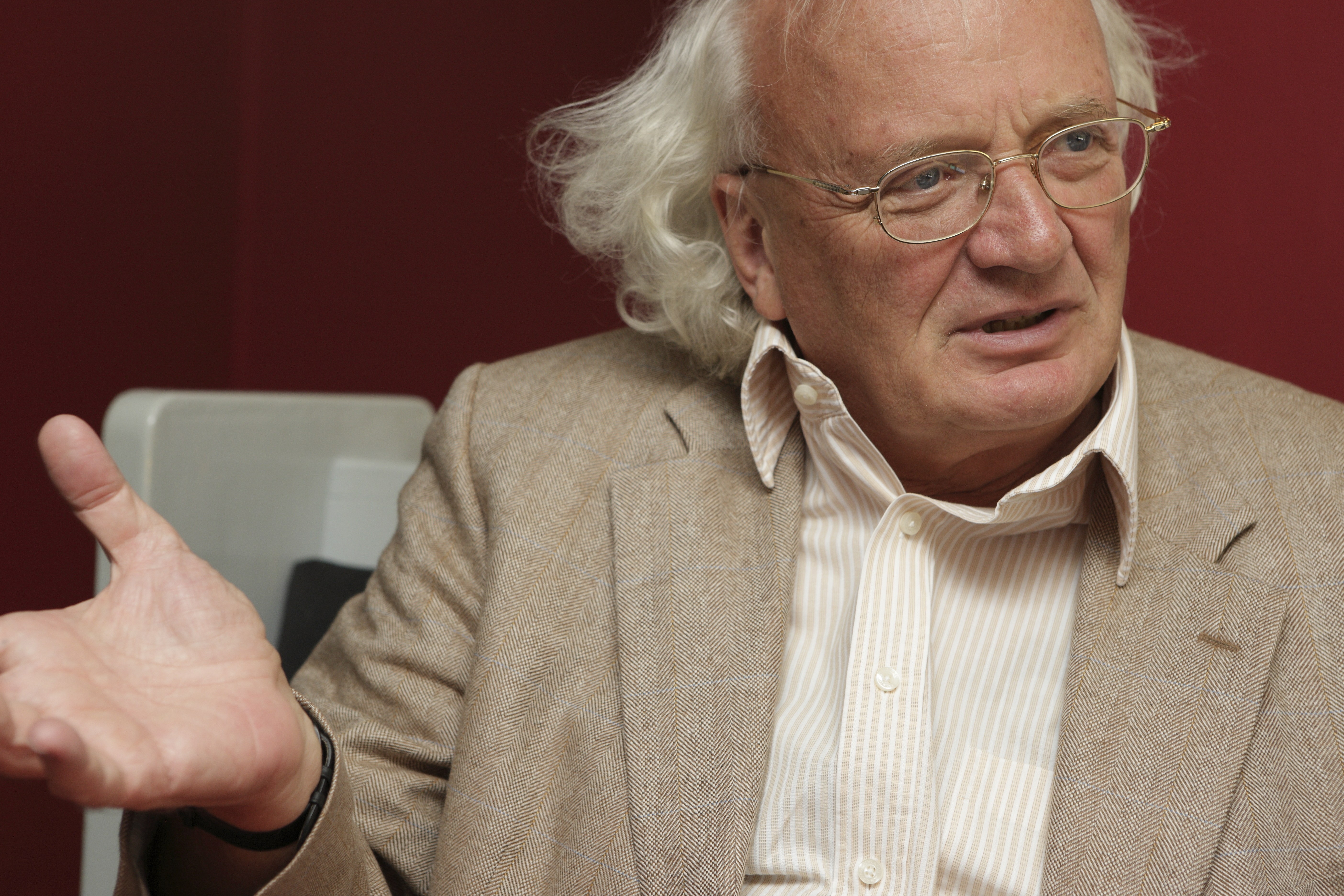
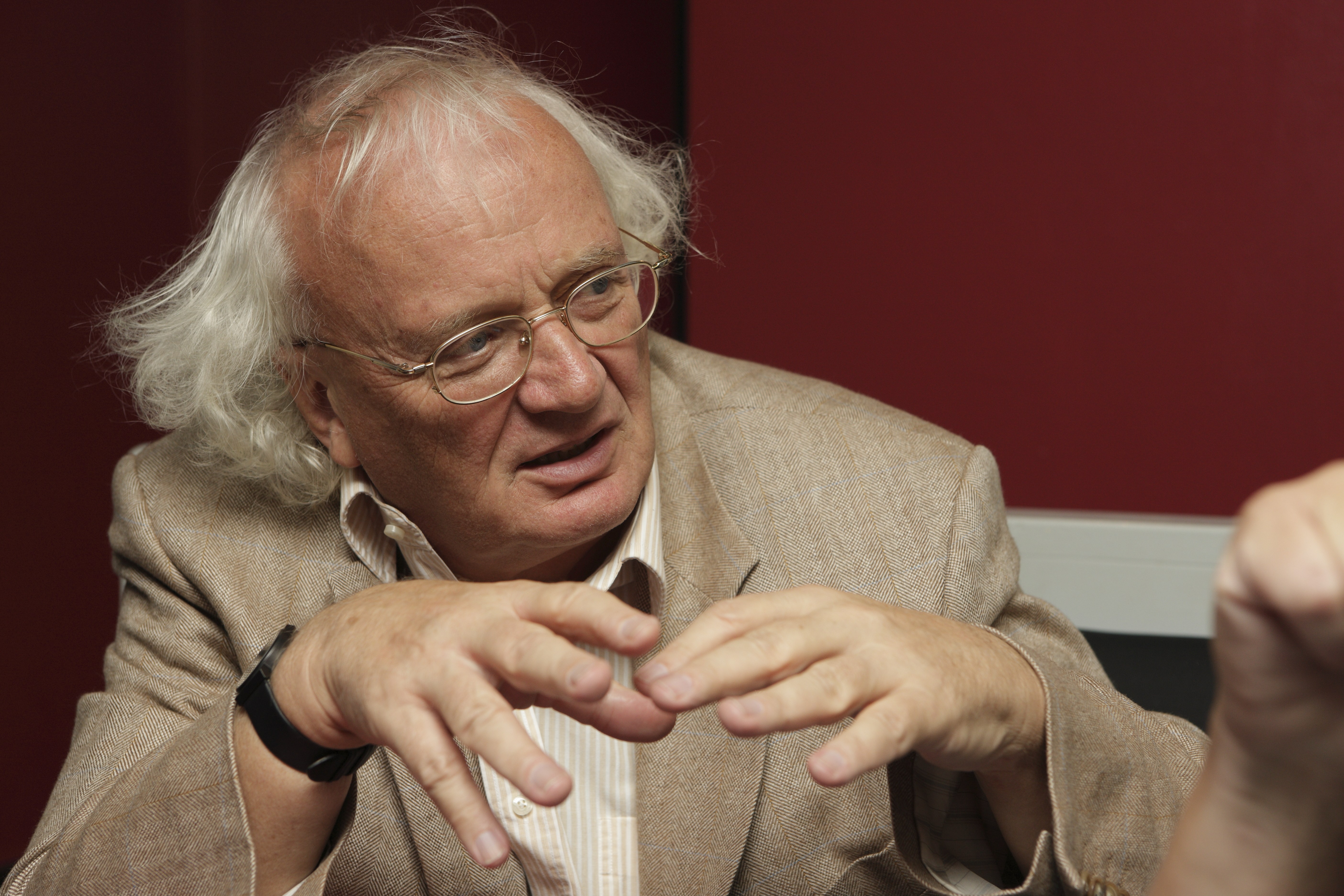
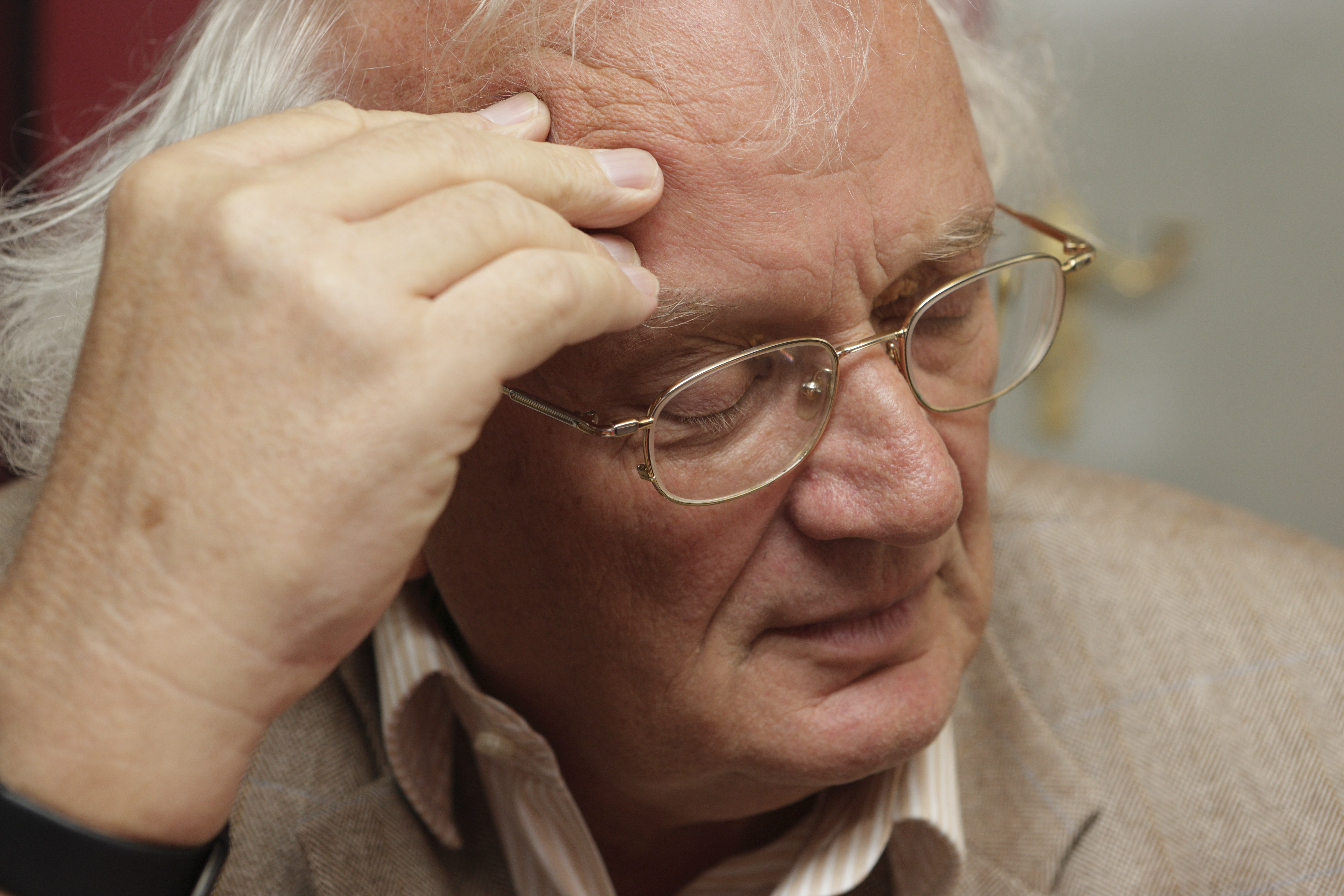


Chronology
Piano compositions and chamber music
Made the acquaintance of Peter Hanser-Strecker, his future publisher
Made the acquaintance of Karl Amadeus Hartmann in Darmstadt
Made the acquaintance of the graphic Artist and translator Alastair; Music of Alastair's film "Der Mann in der Flasche" (directed by Herbert Seggelke)
Founded the concert series "musik unserer zeit" in Munich, together with the Music Publisher R. Gartenmaier
State arts examination in the subjects kettledrum and Percussion
Made the acquaintance of Carl Orff
Starting collaboration with Schott Music (Katalog für Schlagzeug III)
Contacts with Indian and Arabian Music at the Ossiach Music Festival; Started to work with the actress Elisabet Woska; various joint Musical theatre projects
Made the acquaintance of Carl Zuckmayer; joint plan of a "Rattenfänger" (pied piper) opera
Birth of his son Carl Raphael Amadeus Hanael Magnus
Prix Brno for the Radio Portrait "Carl Orff"
Villa Massimo Prize; first stay in Rome
Began to work with Michael Ende
Artistic and organization director of the "Münchner Musiknächte" [Munich Music Nights]: Wagner Night, Messiaen Night, Liszt Night, Bartók Night, Stravinsky Night, Janácek Night, among others. "tz-Rosenstrauß des Jahres" Award for the organisation of the "Münchner Musiknächte"
ZDF production "Du bist schön, meine Freundin" (Excerpts from "Schulamit")
Lecture concerts at the Davos Festival "Young artists in concert"
Began to work with the Klezmer Giora Feidman on the "Rattenfänger" Project and on the "Chagall-Zyklus"
Wilhelm Hausenstein Medal
Sieben-Schwaben-Medaille of the Bavarian Swabia
Leopold Award for the audio-book "Der Josa mit der Zauberfiedel - Tänze auf dem Weg zum Mond"
Cultural Award of the District of Upper Bavaria
Startet to work with the German painter and sculptor Antje Tesche-Mentzen
Products
-
für Diskant-Zither (oder Harfe), Zimbeln, Klangschalen, 17 Becken und StreicherHire/performance materialHire/performance material
-
for violin soloComposer: Wilfried HillerSeries: Edition Schott
Violin Library
Instrumentation: violin soloProduct number: VLB 201Product TypeIn stockAs low as €5.99Incl. Tax -
Ein Torso nach Sophokles und OvidComposer: Wilfried HillerMedia Type: Hire/performance materialEdition: Performance materialLanguage: Ancient Greek, GermanHire/performance materialHire/performance material
-
Seven miniatures based on texts by the poet of the same name for voice, flute and violaComposer: Wilfried HillerEdition: Separate editionSeries: Edition Schott
Instrumentation: voice, flute and violaProduct number: ED 22479Product TypeIn stockAs low as €19.99Incl. Tax -
"En ma fin est mon commencement"Composer: Wilfried HillerMedia Type: Hire/performance materialEdition: Performance materialLanguage: GermanHire/performance materialHire/performance material
-
Ein klingendes MosaikComposer: Wilfried HillerMedia Type: Hire/performance materialEdition: Performance materialLanguage: GermanHire/performance materialHire/performance material
-
Ein klingendes Mosaik in sieben BildernComposer: Wilfried HillerMedia Type: Hire/performance materialEdition: Performance materialInstrumentation: soloists, choir and ensembleLanguage: German, LatinHire/performance materialHire/performance material
-
from 2 Miniatures for ChildrenComposer: Wilfried HillerEditor: Monika TwelsiekMedia Type: E-score PDFInstrumentation: pianoProduct number: ED 9047 Q13219E-score PDFE-score PDFIn stock€2.99Incl. Tax
-
Römische FreskenComposer: Wilfried HillerMedia Type: Hire/performance materialEdition: Performance materialLanguage: Old ItalianHire/performance materialHire/performance material
-
Suite aus den Ludi scaeniciComposer: Wilfried Hiller | Carl OrffArranger: Wilfried HillerMedia Type: Hire/performance materialEdition: Performance materialHire/performance materialHire/performance material
-
für Klarinette und KammerorchesterHire/performance materialHire/performance material
-
Die flankierenden Mittelfenster zu St. Stephan in Mainz -Hire/performance materialHire/performance material
-
Nr. 3 aus dem "Wachsfigurenkabinett"Composer: Karl Amadeus HartmannArranger: Wilfried HillerMedia Type: Hire/performance materialEdition: Performance materialLanguage: GermanHire/performance materialHire/performance material
-
A collection of new pieces for pianoMedia Type: Sheet musicInstrumentation: pianoLanguage: EnglishProduct number: ED 21470Print editionPrint editionIn stock€10.00Incl. Tax, Excl. Shipping
-
nach einem Thema von Carl Amadeus HillerComposer: Wilfried HillerMedia Type: E-score PDFEdition: Separate editionSeries: Edition Schott
Instrumentation: pianoProduct number: ED 21455 Q11150E-score PDFE-score PDFIn stock€1.99Incl. Tax -
Sieben ChoraphorismenComposer: Wilfried HillerEdition: Choral scoreSeries: Schott Choral Music
Instrumentation: female choir or children's choir (SMezA)Product number: C 46435Product TypeIn stockAs low as €4.99Incl. Tax -
nach wiedergefundenen alten QuellenComposer: Wilfried HillerMedia Type: Hire/performance materialEdition: Performance materialLanguage: GermanHire/performance materialHire/performance material
-
Ein Singspiel in 7 Bildern und 6 ZwischenspielenComposer: Wilfried HillerEdition: LibrettoSeries: Das Traumfresserchen
Instrumentation: Soloists, Choir and OrchestraProduct number: BN 3380-40Product TypeIn stockAs low as €5.99Incl. Tax -
Ein Singspiel in 7 Bildern und 6 ZwischenspielenComposer: Wilfried HillerMedia Type: Hire/performance materialEdition: Performance materialLanguage: GermanHire/performance materialHire/performance material
-
for Violin and PianoComposer: Wilfried HillerSeries: Edition Schott
Violin Library
Instrumentation: violin and pianoProduct number: VLB 150Product TypeIn stockAs low as €7.99Incl. Tax -
für Bratsche, eine Erzählerin (namens Viola), Klarinette (auch Bassklarinette), Klavier (auch Celesta und Drehorgel), Pauken und Schlagzeug (1 Spieler)Composer: Wilfried HillerText writer: Stefan Ark NitscheMedia Type: Sheet musicEdition: Score and partsProduct number: ED 23940Print editionPrint editionOut of stock€55.00Incl. Tax, Excl. Shipping
-
Portrait based on a figure and a text by Antje Tesche-MentzenHire/performance materialHire/performance material
-
Ein Singspiel aus OzeanienComposer: Wilfried HillerMedia Type: Hire/performance materialEdition: Performance materialLanguage: GermanHire/performance materialHire/performance material
-
Ein Melodram für Marionetten nach Wilhelm BuschComposer: Wilfried HillerMedia Type: Hire/performance materialEdition: Performance materialLanguage: GermanHire/performance materialHire/performance material
-
Eine bairische Mär mit Musik in acht Bildern und einem EpilogComposer: Wilfried HillerMedia Type: Hire/performance materialEdition: Performance materialLanguage: GermanHire/performance materialHire/performance material
-
Tänze auf dem Weg zum MondComposer: Wilfried HillerEdition: Performing scoreSeries: Der Josa mit der Zauberfiedel
Instrumentation: Narrator, Violin, Percussion and PianoProduct number: ED 7803Product TypeIn stockAs low as €29.99Incl. Tax -
Composer: Wilfried HillerAuthor: JanoschMedia Type: Book with CDSeries: Der Josa mit der Zauberfiedel
Language: GermanProduct number: ED 20852Book + CDBook + CDIn stock€22.50Incl. Tax, Excl. Shipping -
Tänze auf dem Weg zum MondComposer: Wilfried HillerMedia Type: Hire/performance materialEdition: Performance materialLanguage: GermanHire/performance materialHire/performance material
-
Nr. 1 der "Vier musikalischen Fabeln": Eine musikalische Fabel in drei AktenComposer: Wilfried HillerMedia Type: Hire/performance materialEdition: Performance materialLanguage: GermanHire/performance materialHire/performance material
-
Ein Hamelner Totentanz in 11 Bildern, einem Prolog und einem EpilogComposer: Wilfried HillerMedia Type: Hire/performance materialEdition: Performance materialLanguage: GermanHire/performance materialHire/performance material
-
Ein Hamelner TotentanzComposer: Wilfried HillerMedia Type: BookEdition: LibrettoSeries: Der Rattenfänger
Language: GermanProduct number: BN 3381-20BookBookIn stock€8.00Incl. Tax, Excl. Shipping -
Zweiundzwanzig Szenen und ein Zwischengesang nach Theodor StormComposer: Wilfried HillerMedia Type: Hire/performance materialEdition: Performance materialLanguage: GermanHire/performance materialHire/performance material
-
22 Szenen und ein ZwischengesangComposer: Wilfried HillerMedia Type: BookEdition: LibrettoSeries: Der Schimmelreiter
Language: GermanProduct number: BN 3384BookBookIn stock€8.00Incl. Tax, Excl. Shipping -
Szenen nach dem Neuen TestamentComposer: Wilfried HillerMedia Type: Hire/performance materialEdition: Performance materialLanguage: GermanHire/performance materialHire/performance material
-
Bilder einer Entwicklung aus dem deutschen Schicksal nach Hans Jacob Christoffel von Grimmelshausen (Urfassung)Composer: Karl Amadeus HartmannEditor: Wilfried Hiller | Robert KlimeschMedia Type: Hire/performance materialEdition: Performance materialLanguage: GermanHire/performance materialHire/performance material
-
Nr. 3 der "Vier musikalischen Fabeln"Composer: Wilfried HillerMedia Type: Hire/performance materialEdition: Performance materialLanguage: GermanHire/performance materialHire/performance material
-
Nr. 4 der "Vier musikalischen Fabeln"Composer: Wilfried HillerMedia Type: Hire/performance materialEdition: Performance materialLanguage: GermanHire/performance materialHire/performance material
-
Libretto von Herbert AsmodiComposer: Wilfried HillerMedia Type: Hire/performance materialEdition: Performance materialLanguage: GermanHire/performance materialHire/performance material
-
Eine TaschenoperComposer: Wilfried HillerMedia Type: BookEdition: LibrettoLanguage: GermanProduct number: BN 3382BookBookIn stock€8.00Incl. Tax, Excl. Shipping
-
für gemischten Chor und zwei AmbosseComposer: Wilfried HillerEdition: Vocal and performing scoreSeries: Schott Chamber Choir
Instrumentation: mixed choir (SSATBB) and 2 AmbosseProduct number: SKR 20064Product TypeIn stockAs low as €5.99Incl. Tax -
Eine musikalische Clownerie frei nach Lewis Carrolls Nonsensegedicht "The Hunting of the Snark"Composer: Wilfried HillerMedia Type: Hire/performance materialEdition: Performance materialLanguage: GermanHire/performance materialHire/performance material
-
für eine Sängerin, Klarinette, Harfe und SchlagzeugComposer: Wilfried HillerMedia Type: Hire/performance materialEdition: Performance materialLanguage: GermanHire/performance materialHire/performance material
-
Diminuendo für einen Erzähler, einen Klarinettisten und BordunProduct TypeIn stockAs low as €10.99Incl. Tax
-
für BläserensembleHire/performance materialHire/performance material
-
Cycle based on Rainer Maria RilkeComposer: Wilfried HillerEdition: Score and partsSeries: Edition Schott
Instrumentation: mezzo-soprano, viola d'amore and harpProduct number: ED 22519Product TypeIn stockAs low as €33.99Incl. Tax -
based on Ovid's MetamorphosesComposer: Wilfried HillerEdition: Score and partsSeries: Edition Schott
Instrumentation: 2 violins, viola, cello, double bass, clarinet, bassoon and horn (also alpenhorn)Product number: ED 21574Product TypeIn stockAs low as €41.99Incl. Tax -
Ein Dichtermärchen in 23 Bildern von Rudolf HerfurtnerComposer: Wilfried HillerMedia Type: Hire/performance materialEdition: Performance materialLanguage: GermanHire/performance materialHire/performance material
-
Ein Dichtermärchen in 23 BildernComposer: Wilfried HillerMedia Type: BookEdition: LibrettoSeries: Eduard auf dem Seil
Instrumentation: Soloists, Choir and OrchestraLanguage: GermanProduct number: BN 3386BookBookIn stock€8.00Incl. Tax, Excl. Shipping -
scenes for soloists, choir and orchestraHire/performance materialHire/performance material
-
Mythological sceneProduct TypeIn stockAs low as €14.99Incl. Tax


